David Grubbs - Interview
by Paul Waller
published: 28 / 4 / 2013
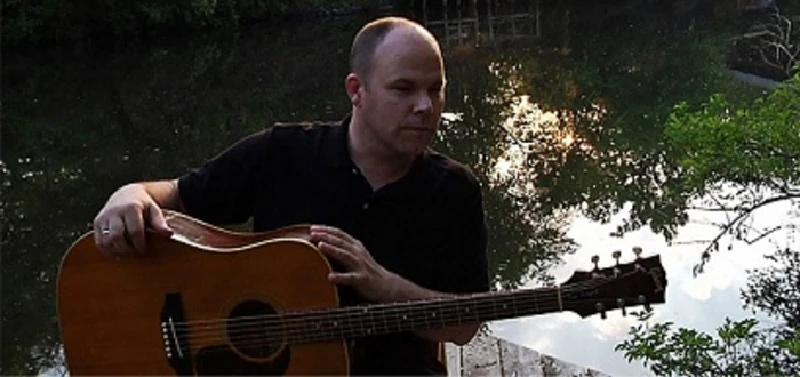
intro
Paul Waller talks to New York-based experimental musician and solo artist David Grubbs about his early years with influential hardcore bands Squirrel Bait and Bitch Magnet and his new album ‘The Plain Where the Palace Stood’
David Grubbs' approach to music has always been somewhat left of centre. Even during his hardcore punk days in the mid-80s, when he was just finding his musical feet with his band Squirrel Bait, he would follow the cues of ground breakers such as Hüsker Dü rather than follow the hordes of knucklehead speed merchants that surrounded him. After relatively short stints in both Bastro and Bitch Magnet, Grubbs spent most of the 90s in the influential and experimental post rockers Gastr del Sol. It was here he developed his taste for improvisation and freeform musical workouts, which since the band’s dissolution he continues to explore in perhaps the most obtuse 'pop' music that you will ever be likely to listen to. Pennyblackmusic caught David for a brief moment whilst he was on his sabbatical from his teaching job at Brooklyn College which is part of the City University of New York, and chatted with him about the vast history of recorded musical output that he has been part of. PB: Why the five year wait between your last solo LP ‘An Optimist Notes the Dusk’ and the new one? DG: Busy! The main project, and one that had me turning down numerous others that otherwise would have happened, is a book that I have now completed called ‘Records Ruin the Landscape: John Cage, The Sixties, and Sound Recording’. Duke University Press will be publishing it in 2014, and between that and teaching, well...five years can just fly right by. PB: On your new album ‘The Plain Where the Palace Stood’ you are joined by drummer/composer Andrea Belfi, and guitarist Stefano Pilia. What do they bring to the table that you wouldn’t be able to achieve on a ‘true’ solo album? DG: First of all, I feel that my approach to the guitar and to music-making generally in the last couple of years owes a lot to the experience of playing in a trio with Andrea and Stefano, and I wanted to continue that conversation in the context of a solo album. It is true that I’ve made at least one solo record that is strictly a record of solos, but I conceive of a record under my own name as one that I’m responsible for at the beginning and at the end, and at points along the way it often makes sense to invite along a number of talented friends. Believe me, you don’t want to hear me behind the drum kit. PB: At varying points I can picture much of the music on the new album sound tracking the score to an unmade film. There is a cinematic presence that emanates from much of your solo work even during the non-instrumental moments. Was any of the music originally planned for such work? And how did you prep for ‘On the Plain…’? DG: None of the material from ‘On the Plain’ originated in a soundtrack, although I have done more soundtrack work (particularly for the director Augusto Contento) recently. From Gastr del Sol forward, I’d say that various kinds of cinematic approaches (not only music but sound design, pacing, use of text) have been a touchstone in the process of making albums. PB: It appears as if a great deal of care has gone into the sequencing on the album. It has the feel of a whole rather than a collection of moments. How important is the final product of a full length album to you in the age of MP3s and diminishing attention spans. DG: Thank you. Yes, as early in the process as possible I like to start experimenting with the sequence of material, which is often decisive in the arrangements; when I start into the overdubbing phase it’s just as often about arranging the longer arc of an album as it is about making arrangements for individual songs. I love albums. 35-40 minutes. Maybe I’m t-t-t-t-alkin’ about mah mah mah g-generation, but I love albums. PB: There is a humour in some of the song titles this time around with ‘I Started to Live When My Barber Died’ and ‘Ornamental Hermit’. Do you think that with your ‘serious’ and ‘highbrow’ indie status that the humorous elements that can be found in your back catalogue are often overlooked? Even the front cover of ‘Act Five, Scene One’ makes me laugh. DG: Again, thank you. I find the records full of humour, especially the lyrics – although I guess a lot of folks find things that make you scratch your head unfunny. Often times I feel the reverse. PB: You have a massive back catalogue of work with many groups and as a solo artist. Do you feel there was ever a misstep in your musical output? If someone was to begin buying your back catalogue would there be a record that you would recommend that person should avoid and if so why? DG: Bastro should have started with a drummer rather than a drum machine. Maybe I should have shouted a little less on those albums. But apart from those, there aren’t really much in the way of looming regrets for me. Where to begin? For the solo albums, I think ‘The Plain’ is the way to go. And ‘Frolic Architecture’, the collaboration with Susan Howe. And also Gastr del Sol’s ‘Camoufleur’, the Red Krayola’s ‘Hazel’, and the first Squirrel Bait record. Those all seem like good starting points. PB: How has your technique for writing lyrics changed over the years? Some of the Gastr del Sol songs felt like lyrics were chopped up to fit into specific parts of the music. Do the words ever come before the musical elements of the song themselves? DG: The words and music almost always come separately. I think I used to take a more sadistic pleasure in twisting words to fit into (rhythmic) spaces where they didn’t belong. I suppose I’m less obstreperous now. I still love a chopped, nearly unparsable phrase, but I guess I’m more inclined to make it cohere musically. At least at the present time. PB: Cast your mind back if you will to the time of Squirrel Bait. Today when the band is talked about in the press Husker Du and Rites Of Spring reference points are often common place. Was the emo/emocore tag ever thrown around when the band was actually active? DG: Definitely not. Although Hüsker Dü and the Replacements were the two most common reference points for Squirrel Bait back in the day. PB: What attracted you into the hardcore scene in the first place? DG: I loved (post-)punk for showing me that entertainment was the enemy – that rock was the enemy. What an incredible thing to discover at age 13! Hardcore then brought it around to my generation, and suddenly it was a lot more fun – much less oriented around private study! PB: Being as young as you were at the time of the self-titled Squirrel Bait and ‘Skag Heaven’ records, I wonder what your parents thought of your punk rock endeavour. Being a parent yourself now would you recommend the lifestyle choice to your own offspring? DG: Amen to that. My kiddo has a big personality and a strong connection to satire. (‘The Simpsons’, for example, really clicked with him early on.) That seems like a good footing to be on. My parents weren’t too worried about me because I was a good kid, and studied hard like I was supposed to. PB: You were 18 when Squirrel Bait ended. Did it feel like there was a whole world out there for you to explore after the band split or were you concerned about what lay ahead for you? DG: The former. And I still do. PB: In 1989 you played with Bitch Magnet on ‘Umber’. What are your memories of that time? DG: Hired gun, for sure. Friends who I enjoyed playing with, but my creative input in the group was minimal. That said, I certainly enjoyed being on tour with them, and in particular playing in Europe in 1989 and 1990. PB: After the upcoming tour what are your plans? You are on a sabbatical from teaching at Brooklyn College. Have you begun the process of composing the next record? Are you cramming as much work in as possible? DG: Pretty much. I’m working on a next collaboration with Susan Howe, which we will present in performance in the fall. I’ve been playing in Noël Akchoté’s ensemble of guitarists playing the music of Carlo Gesualdo, and we’ll finish an album in July. And I’ve just finished a short record of guitar improvisations called ‘Borough of Broken Umbrellas’. Oh! And Belfi/Grubbs/Pilia is just now finishing our second album. PB: Thank you.
Band Links:-
http://darwilliams.com/https://www.facebook.com/DarWilliamsOfficial
https://twitter.com/darwilliamstour
Picture Gallery:-
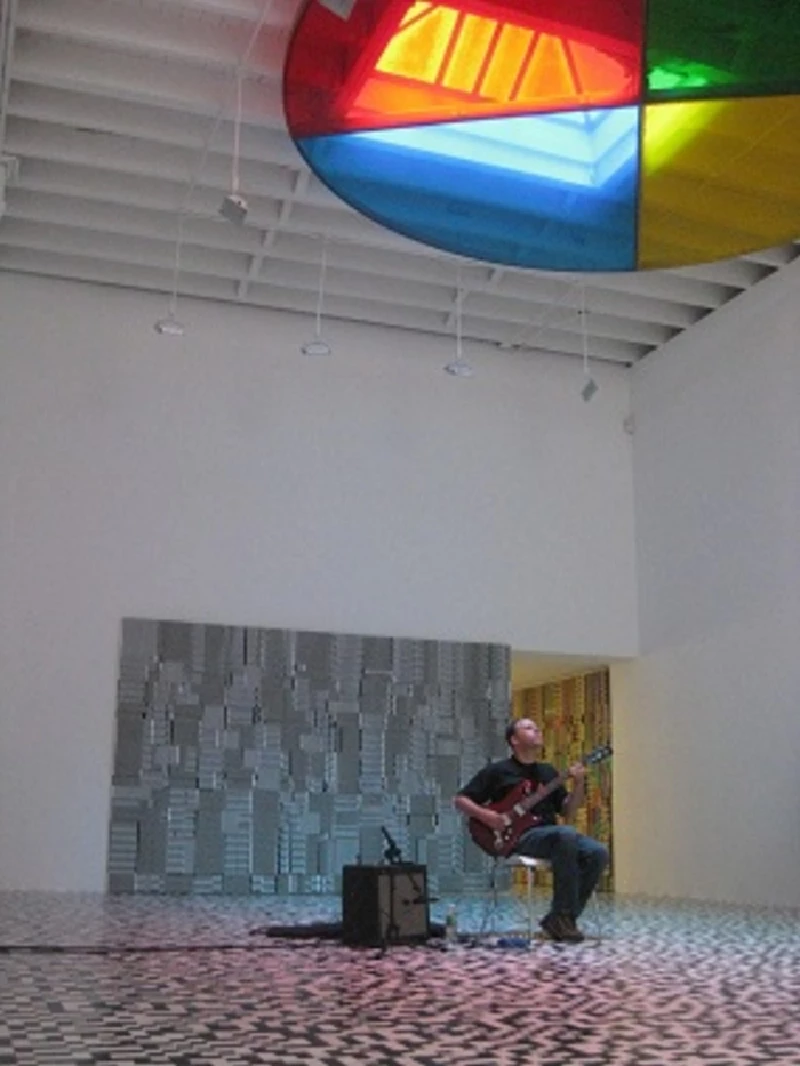
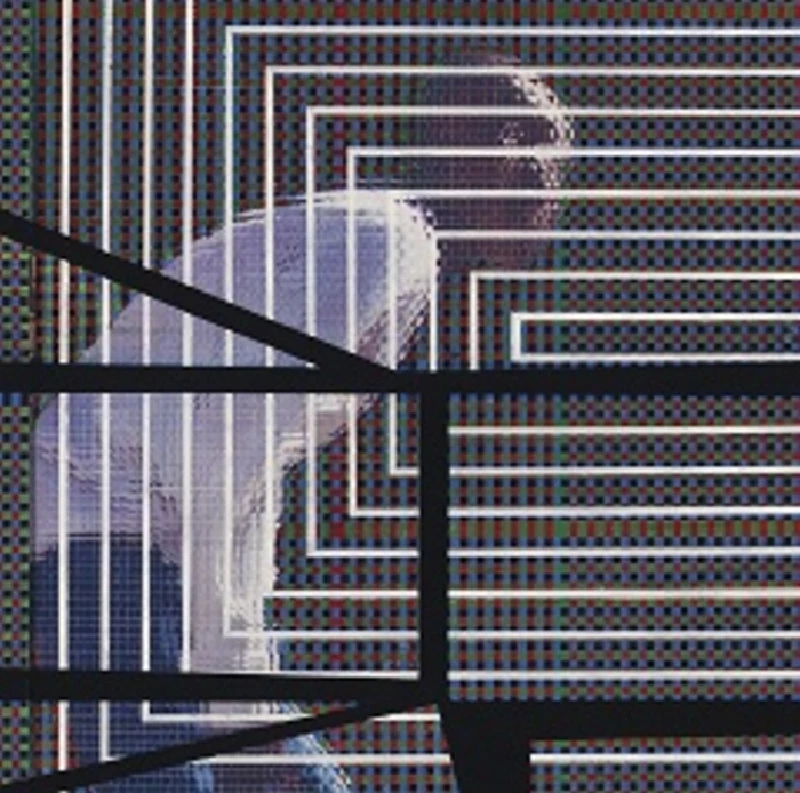
live reviews |
|
Spitz, London, 12/6/2005 |
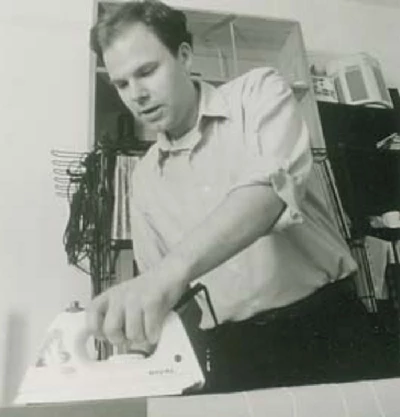
|
| David Grubbs is best known for his work with Jim O' Rourke in post-rock group Gastr del Sol, but now has a three album solo career. Anthony Dhanendran watches him play a sometimes brilliant, but confusing set at the London Spitz |
soundcloud
reviews |
|
An Optimist Notes the Dusk (2008) |
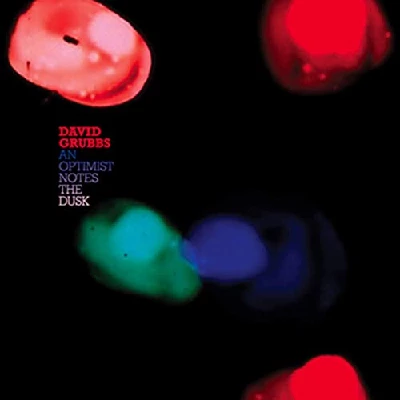
|
| Melodically rich first album in four years from experimental New York-based musician David Grubbs, who has partially returned to form after a string of uninspiring albums |
| The Spectrum Between (2001) |
most viewed articles
current edition
Carl Ewens - David Bowie 1964 to 1982 On Track: Every Album, Every SongArmory Show - Interview with Richard Jobson
John McKay - Interview
Colin Blunstone - Thalia Hall, Chicago, 16/7/2025
Bathers - Photoscapes 1
Billie Eilish - O2 Arena, London, 10/7/2025
Loft - Interview
Visor Fest - Valencia, Spain, 26/9/2025...27/9/2025
Sir Tim Rice - Interview
Robert Forster - Interview
previous editions
Manic Street Preachers - (Gig of a Lifetime) Millennium Stadium, Cardiff, December 1999Heavenly - P.U.N.K. Girl EP
Beautiful South - Ten Songs That Made Me Love...
Peter Perrett - In Dreams Begin Responsibilities Interview Part One
Boomtown Rats - Ten Songs That Made Me Love....
Oasis - Oasis, Earl's Court, London, 1995
Coldplay - Wembley Arena. London, 16/8/2022
Prolapse - Interview
Trudie Myerscough-Harris - Interview
Pixies - Ten Songs That Made Me Love...
most viewed reviews
current edition
Davey Woodward - Mumbo in the JumboSick Man of Europe - The Sick Man of Europe
Lucy Spraggan - Other Sides of the Moon
Bush - I Beat Loneliness
Amy Macdonald - Is This What You've Been Waiting For?
Phew, Erika Kobayashi,, Dieter Moebius - Radium Girls
Suzanne Vega - Flying With Angels
Blueboy - 2
Alice Cooper - The Revenge of Alice Cooper
Cynthia Erivo - I Forgive You
Pennyblackmusic Regular Contributors
Adrian Janes
Amanda J. Window
Andrew Twambley
Anthony Dhanendran
Benjamin Howarth
Cila Warncke
Daniel Cressey
Darren Aston
Dastardly
Dave Goodwin
Denzil Watson
Dominic B. Simpson
Eoghan Lyng
Fiona Hutchings
Harry Sherriff
Helen Tipping
Jamie Rowland
John Clarkson
Julie Cruickshank
Kimberly Bright
Lisa Torem
Maarten Schiethart